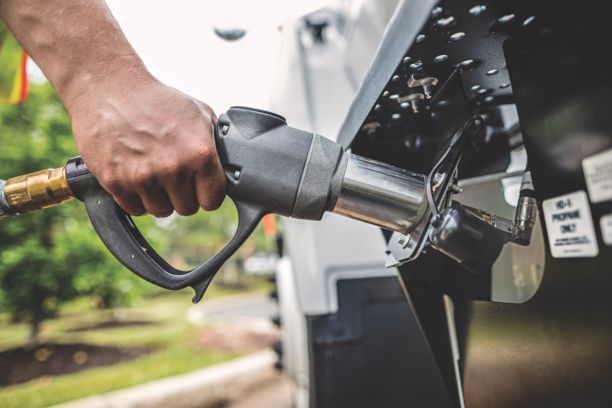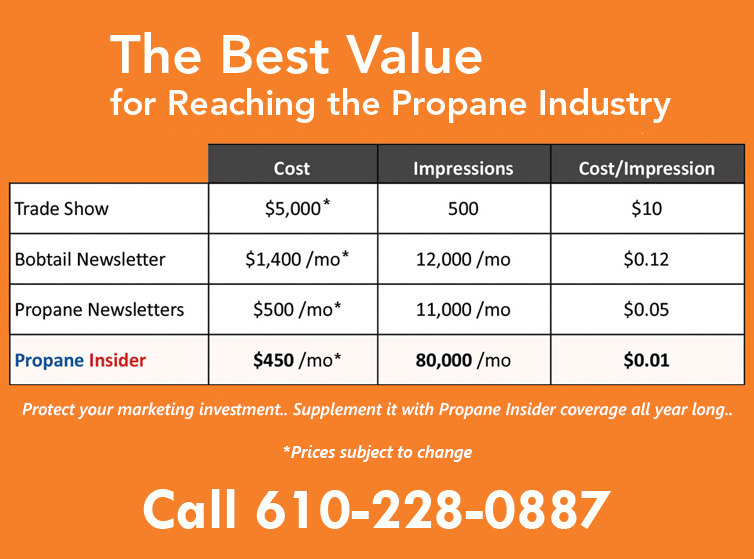Propane-Powered Engine Innovation Promises Lower Emissions and Cost Savings

A groundbreaking collaboration between Stanadyne, Katech, and the Propane Education & Research Council (PERC) has led to the development of an innovative engine technology that could revolutionize the transportation industry. This pioneering solution offers fleet owners a cost-effective, low-emission, and high-efficiency engine system, taking the industry closer to achieving zero emissions.
The new technology combines Stanadyne’s direct injection fuel pump and injector system with Katech’s vapor lock technology, creating the first-of-its-kind medium-duty engine system capable of delivering propane autogas directly into the engine at a constant 350-bar pressure. This partnership reflects the shared commitment of the three companies to decarbonization and sustainability.
A Decisive Breakthrough
Dr. Gokul Vishwanathan, Director of Research and Sustainability at PERC, emphasized the significance of this technological advancement, explaining, “The direct liquid injection system for high-vapor pressure gases such as propane autogas has been technically elusive until this joint partnership between PERC, Katech, and Stanadyne materialized. This technology will be a significant enabler for high-efficiency and low-emission propane and renewable propane-powered engines and hybrids for the on-road and off-road markets.”
The breakthrough engine technology effectively overcomes vapor lock, a common issue with liquified gases that can disrupt fuel pump operation. By resolving this challenge, the new technology enhances engine performance and efficiency. The combined system underwent a 250-hour performance and durability test, successfully demonstrating its compatibility with existing engines and the potential for propane autogas to serve as a low-carbon, high-performance substitute for gasoline and diesel engines.
David Zimmerman, President of Stanadyne, underlined the importance of this advancement in terms of sustainability, remarking, “Internal combustion engines are the workhorses of our economy, and this advancement in technology will help them run much more sustainably using renewable fuels. The opportunity to partner with PERC and Katech on this initiative aligns with our commitment to developing solutions bridging the significant adoption gap between fossil-fueled propulsion and low-carbon and zero-carbon fueled vehicles.”
Enhanced Reliability and Environmental Impact
Eric Suits, Lead Engineer at Katech, noted the collaborative nature of this partnership: “Collectively, we have produced a truly complimenting control strategy and delivery system necessary to ensure reliable propane direct injection operation under all operating conditions.”
This technological advancement positions fleet owners to surpass the ultra-low emissions mandates set for 2027. Propane autogas, in comparison to diesel, offers a 96 percent reduction in harmful nitrogen oxide emissions and a five to ten percent decrease in carbon dioxide emissions. Additionally, this engine technology is capable of utilizing renewable propane, which boasts a carbon intensity four times lower than conventional diesel.
Gavin Hale, Director of Business Development at PERC, pointed out the short-term and long-term advantages of this innovation: “In the short term, this engine technology provides medium-duty fleet owners with a decarbonization solution to meet their immediate goals. But the real breakthrough is the long-term impact this will have to provide fleets with exactly what they need—a powerful engine that exceeds sustainability goals and reduces fuel and operation costs to provide the lowest total cost of ownership of any energy source.”
















